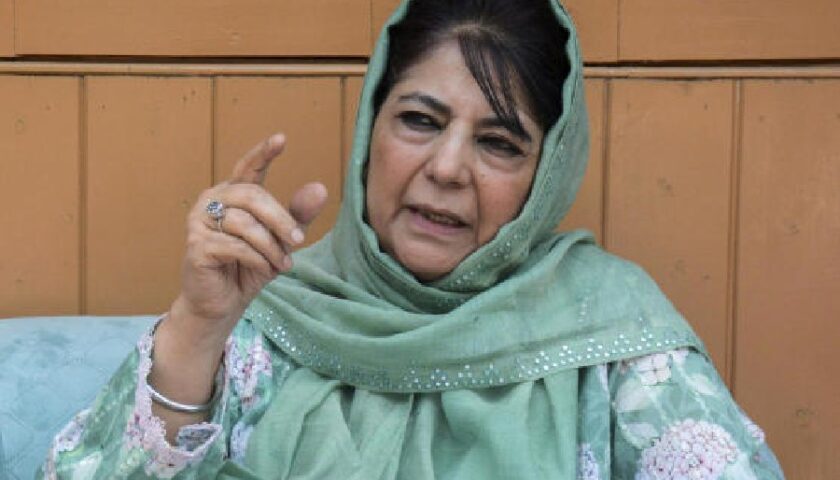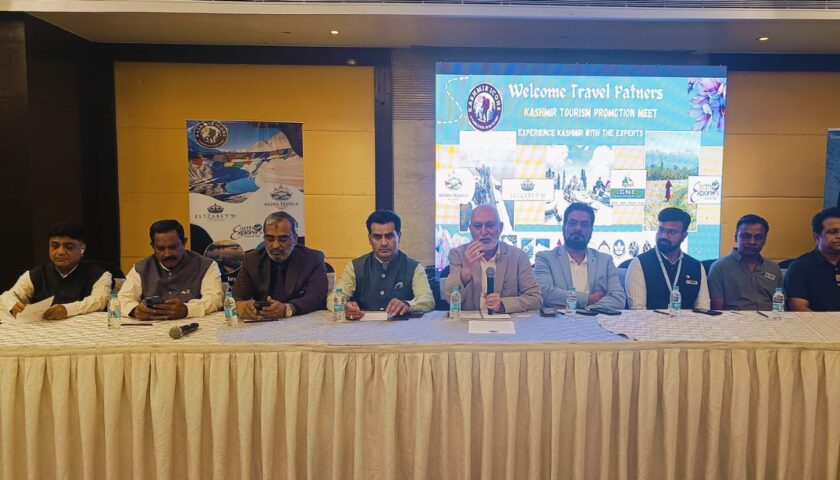In the past over two-and-half decades when India was making long strides and expanding its wings in the competitive global market, its crown Kashmir witnessed complete shutdown for a cumulative period of over five years on account of ‘hartal calls’ and ‘bandhs’ sponsored by separatists and terror outfits.
A State Police Department report revealed that between January 1990 and December 31, 2016, the Valley has witnessed nearly 2,000 ‘hartals’ (shutdowns) on account of bandh calls, completely jamming the wheels of the economy.
In addition to this, approximately 2,500 processions and demonstrations were organized across the Valley, plunging the State economy to near rock bottom compared to other smaller neighboring states.
Though the majority of these bandh calls were given by separatist groups in Kashmir valley, the Jammu region also got affected by bandhs, especially in the wake of Amarnath land row agitation.
According to police records, the maximum number of 207 hartals were organized in 1991 when militancy was at its peak, followed by 198 hartlas in 1990.
During the period, militant outfits enjoyed free run in the absence of State machinery on ground zero. Political activity had seized and mainstream politicians had migrated to Jammu and New Delhi for their own safety.
The lowest number of hartals was observed in 2007 when Kashmir remained shut for only13 days.
During 2010 unrest, Kashmir remained shut for 132 days. Similarly, Kashmir observed shutdown for 33 days during the Amarnath land row in 2008. Interestingly, soon after popular government headed by Dr Farooq Abdullah assumed office in October 1996, the number of protest demonstrations and hartals declined further southwards and the final tally witnessed a sharp fall during the corresponding years.
As compared to 95 days of shut down in 1996, the Valley witnessed only 24 hartals in 1999.A year after, the figure suddenly jumped to 122 in 2001 at the fag end of the six year term of Dr Farooq Abdullah, who faltered midway air dashing high hopes of State populace and was finally thrown out of power.
The State witnessed complete turnaround in situation post 2002 Assembly elections.
Soon after Mufti Mohd Sayeed took over from Dr Farooq Abdullah, he went on to woo Kashmiris with his ‘healing touch policy’ and raised hopes of common people.
Year 2002 saw 76 hartals and by year 2005 when Mufti handed over baton to Congress Chief Minister Ghulam Nabi Azad, the figure had already touched all time low, 18 hartals in a year.
During Mufti regime, 58 and 25 hartals were witnessed in 2003 and 2004 respectively.
According to political pundits, Mufti Mohammed Sayed was able to bring this significant change in the atmosphere because he switched over to propagating ‘soft separatism’ leaving little space for separatists in Kashmir to saddle themselves in the driving seat.
After the transition of power happened in the winter of 2005 and Azad took over the charge, Kashmir witnessed only 26 strikes in 2006. A total number of 72 hartal calls were given by separatist outfits during his term in office.
Significantly, Jammu region too witnessed mother of all agitations during his term in office after Amarnath land row rocked the State leading to fall of the Azad led coalition government on July 7, 2008.
During Governors’ rule unprecedented Bandh continued in Jammu between July 24, 2008 to August 31 2008 before the final agreement was inked and the Amarnath Shrine Board was given go ahead to create infrastructure for the pilgrims during the Yatra period.
Since January 2009, when Omar Abdullah took charge as youngest Chief Minister of the State, Kashmir witnessed long Bandhs during the Shopian twin murder and rape case.
As per the report, 35 Hartal calls were given in 2009 by the militant outfits to test patience of the youngest Chief Minister.
In 2010, Kashmir valley once again erupted on the streets and observed over 130 Bandh calls in the aftermath of spontaneous street violence. Only 22 hartal calls were registered in 2011, 19 in 2012, 37 in 2013, 41 in 2014 and 29 till December 2015.
This year, Hartal calls crossed 100-milestone after Hizbul Mujahideen terrorist Burhan Wani was killed on July 8.
For over 120 days, the Valley witnessed complete shut down along with non availability of railway services.
During the period even mobile internet services also remained banned and the common residents remained cut off from rest of the world in the absence of communication tools.
Saturday, February 21, 2026
Breaking News
- Mehbooba Mufti Demands 50% Import Duty on Apples to Protect J&K Horticulture Sector
- Kashmir’s Warmest February Threatens Hydropower: Early Snowmelt Raises Energy Security Concerns
- Trump Iran Nuclear Deal Deadline: 10–15 Day Ultimatum, Tehran Retaliation Threats & What’s Next
- 70,000 Substance Users in Kashmir, 50,000 Addicted to Heroin: A Deepening Crisis
- CRPF Shelves Eco-Sensitive Base Plan in J&K, Retains 43 Temporary Security Units



